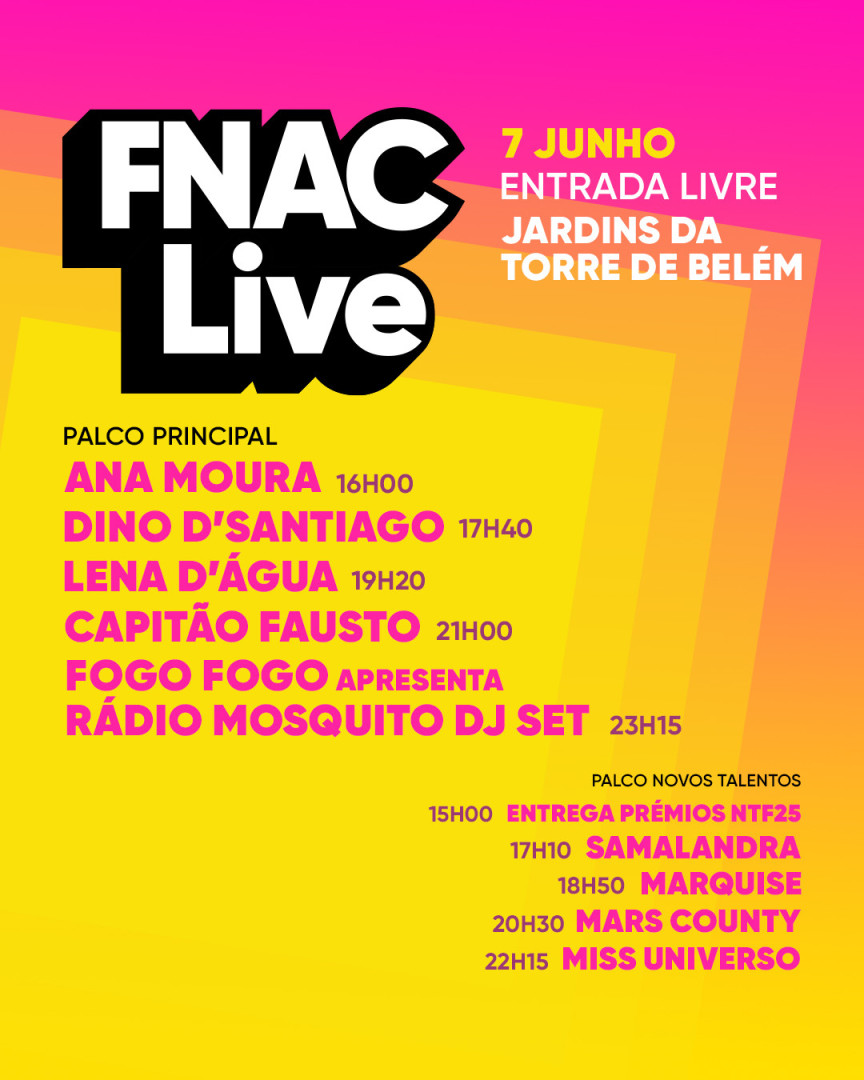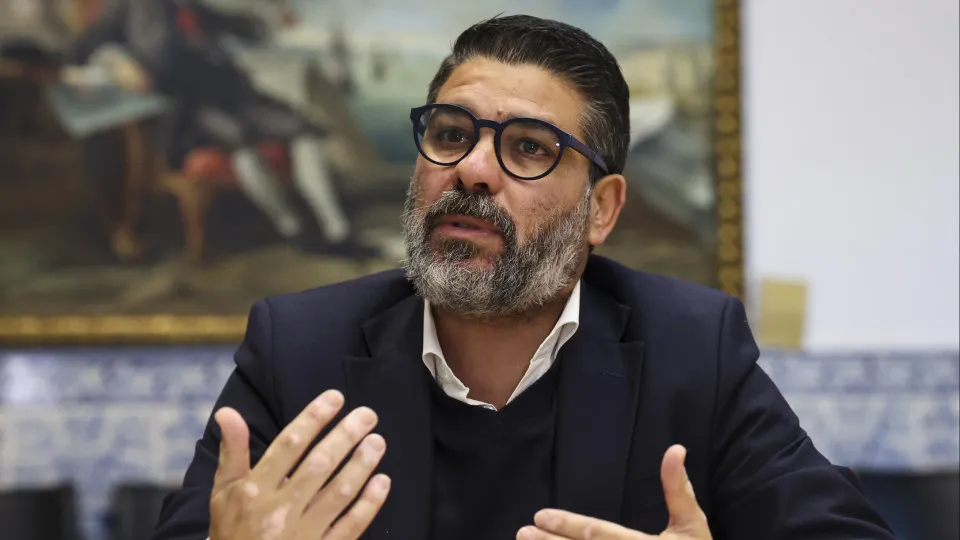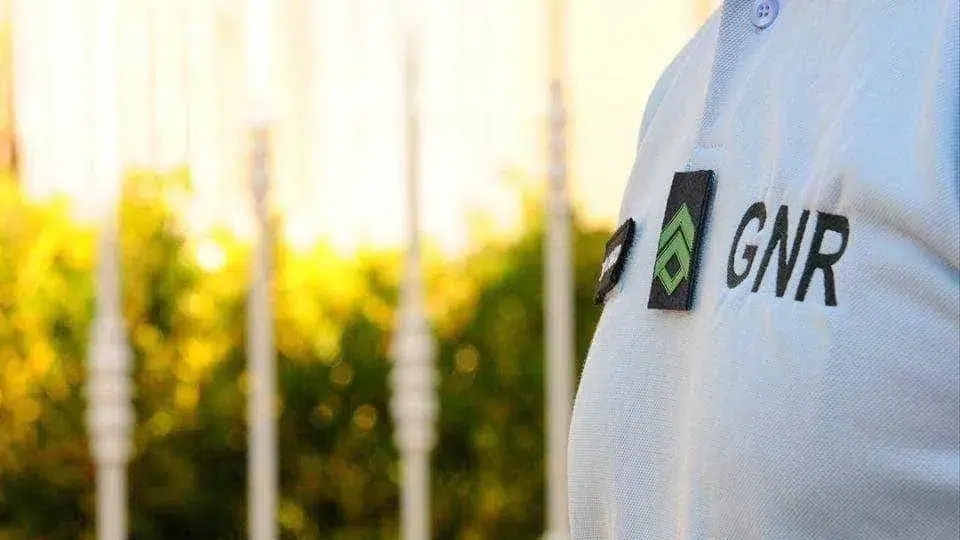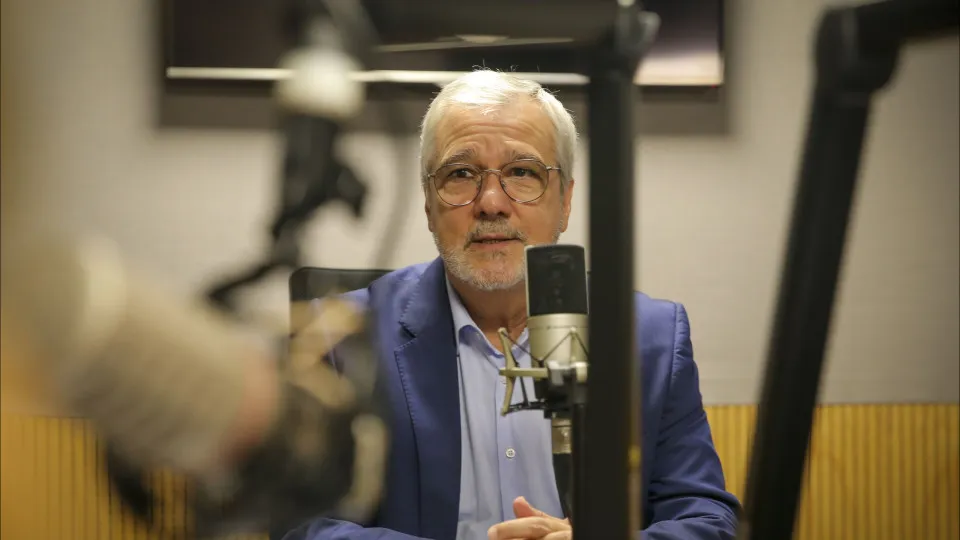The FNAC Live event returns to the gardens of Torre de Belém, Lisbon, this Saturday, June 7. In its 13th edition, the free event features artists such as Ana Moura, Lena D’Água, Dino d’Santiago, and Capitão Fausto. The festival also promotes new talent, with the FNAC New Talents Stage hosting Samalandra, winners of the NTF’24, Marquise, honorable mention in NTF’24, and bands Miss Universo and Mars County.
Notícias ao Minuto spoke with one of the lineup artists, Lena D’Água, who shared some insights into her performance setlist.
Before taking the stage, although she has no specific ritual, a traditional “group hug” with the team will take place, as she revealed. “When I step in, the nervousness goes away. It’s there [on stage] that music is true. Records can be great, but live, that’s where the truth is,” she added.
Lena D’Água will present songs from her recent album, ‘Tropical Glaciar,’ released last November. This is the second album she has released since her ‘return’ in 2019 with ‘Desalmadamente,’ both developed with Pedro da Silva Martins. “He will write at least one more [album]. I don’t know how many years I have left to live, but the third [album] is guaranteed. But no rush,” she stated.
Lena D’Água emphasizes her position as one of the oldest active women in the Portuguese music scene, alongside Maria João (notable in jazz), highlighting the challenges faced. “The men are all there, but women our age have given up because a woman cannot age.”
Still full of energy and eager to remain on stage, the artist continues to bring some of her 80’s hits to the show.
“It’s amazing how songs written 40 years ago are still alive. ‘Demagogia,’ for example, remains relevant. These are timeless themes, unfortunately.”
In her upcoming concert, D’Água will primarily present new music, mixed with a bit of 80s hits and some tracks from ‘Desalmadamente,’ her 2019 album. Last year, the performance was canceled due to illness. “We were supposed to perform last year, but two days before, I got a fever, sneezes, cough… I had Covid. I watched on TV. Finally, this year, we’ll perform with the new album.”

Responding to a question about the unmissable tracks in her concerts, she mentioned the challenge of pleasing long-time fans with her older repertoire. “There are multiple. When you play ‘Sempre que o amor me quiser’ instead of ‘Dou-te um doce,’ someone will say ‘Dou-te um doce’ was missing… It’s tough with old ones, because if I played all the old ones my longtime fans expect, it’s impossible. I didn’t stop in the 80s.”
While reflecting on her enduring hits that audiences continually request, Lena D’Água noted, “I always knew the songs I recorded in the 80s – mostly composed by Luís Pedro Fonseca – were timeless. On Sunday, at the Coala Festival, it was incredible how songs written 40 years ago continue to be alive. ‘Demagogia,’ for instance, remains relevant. Sadly, these themes never go out of fashion. I’m always overjoyed.”
Despite the lack of television programs featuring live music, aside from one hosted by Herman, radio playback and festival circuits dominate. “For us, who don’t do playback, it’s sad. Even on the radio, Tina Turner or Jennifer Lopez might play more often than me. I don’t know how they manage the quotas of [Portuguese music], perhaps at dawn. In the morning, I start my day listening to the radio before making my tea, tending to my cats and dogs. More than half of the songs are not Portuguese. That’s very sad. Not to mention private stations, but at least Antena 1 and Antena 3 (which I think is better).”
On a recent morning, she observed, “Jorge Palma’s birthday was followed by an American song on the radio. It bothers and annoys me. So many are making incredible music without the exposure they deserve – speaking about our public radio. Television will still take time to appreciate music.”
With regard to her personal and professional freedom, Lena D’Água expressed, “I feel even freer. [In terms of] reacting, speaking, and expressing myself, I have no fear now because I have nothing to lose. For 50 years, I’ve worked freelance. I owe nothing to anyone.”
Reflecting on her independent nature, she agreed. “Emotionally, no. I need, of course, my daughter, my friends, my musicians, my grandson, my nephews… Without them, this would be a desert. But in terms of speaking out and being free to speak, I am freer now at my age than ever – and I’ve always been quite [free].”
The album ‘Tropical Glaciar’ also touches on ecological themes. When asked about music’s role in education or delivering messages, especially to children, she shared, “Yes! When the album was released, I received an Instagram video of a team happily collecting ‘ugly fruit’ to distribute while singing ‘Fruta Feia.’ I was so happy, truly. There’s more of this countrywide, but it’s not widely promoted since promotion focuses on… harmful products. I asked Pedro during ‘Desalmadamente’ to address my ecological concerns in his songs. ‘Fruta Feia’ and ‘Carne Vegan’ exemplify what he delivered. It’s wonderful.”




